Syria peace: the challenges of Geneva II
Thousands dead, millions displaced, and daily atrocities – the Geneva II talks to find peace in Syria are aimed at finding a crucial solution, but the challenges seem insurmountable.
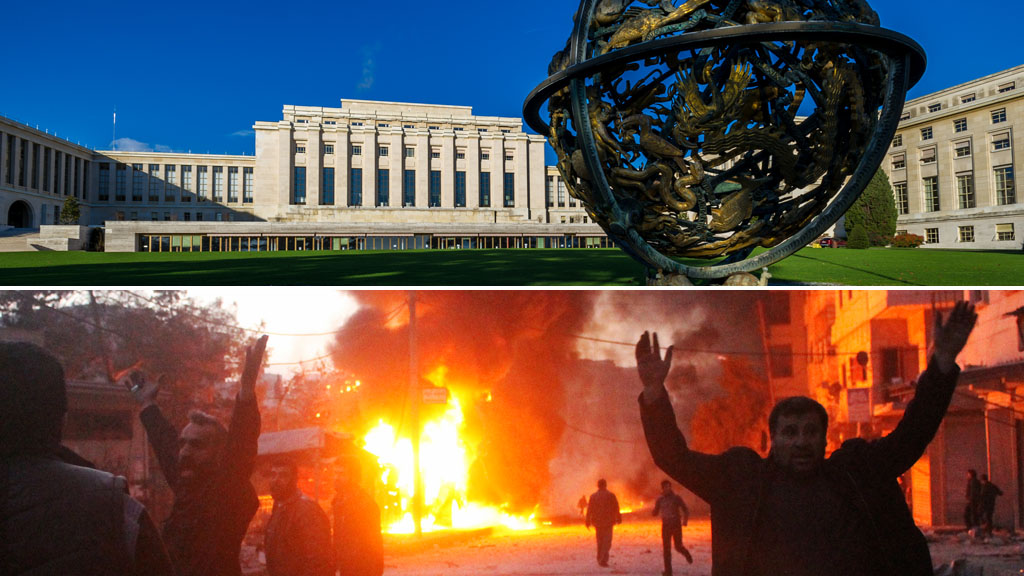
UN Secretary-General Ban Ki-Moon has called the conference, which begins in Montreux, Switzerland before moving to Geneva on Friday, “our long-awaited chance to end the violence and begin putting the country back together.”
However, putting the Bashar al-Assad regime and members of the Syrian rebel opposition together around a negotiating table has been difficult enough.
The Syrian National Coalition, the Western-backed “moderate” rebel group, only confirmed that it would be attending the peace talks less than a week before they were due to begin.
Read more: International Editor Lindsey Hilsum - Not the best start to Syria's Humpty Dumpty talks
The exiled political group is seeing a battle on multiple fronts for Syria, as Assad’s troops make gains and extreme jihadi groups fight against the more moderate elements. The decision to attend came after a group of 11 international powers, including Britain and the US, urged the opposition to attend.
Now the parties are set to meet in Geneva, with the peace talks overseen by the UN’s Syria peace envoy Lakhdar Brahimi, the job in hand gets much harder.
Goals
The Syrian National Coalition is attending the conference in order to see the implementation of the six-point plan agreed at Geneva I in 2012, which called for the setting up of a transitional government. By their interpretation (and the British and US interpretation) of Geneva I, this means the removal of Bashar al-Assad.
The official Syrian delegation is not going to Geneva to surrender power. Syrian foreign ministry official
On Tuesday Badr Jamous, secretary-general of the Syrian National Coalition, said: “We will not accept less than the removal of the criminal Bashar al-Assad and changing the regime and holding the murderers accountable.”
Assad’s government, however, is not planning on relinquishing power. In November, a statement run by state-controlled news agency SANA accused the opposition and their Western allies of “dreaming”.
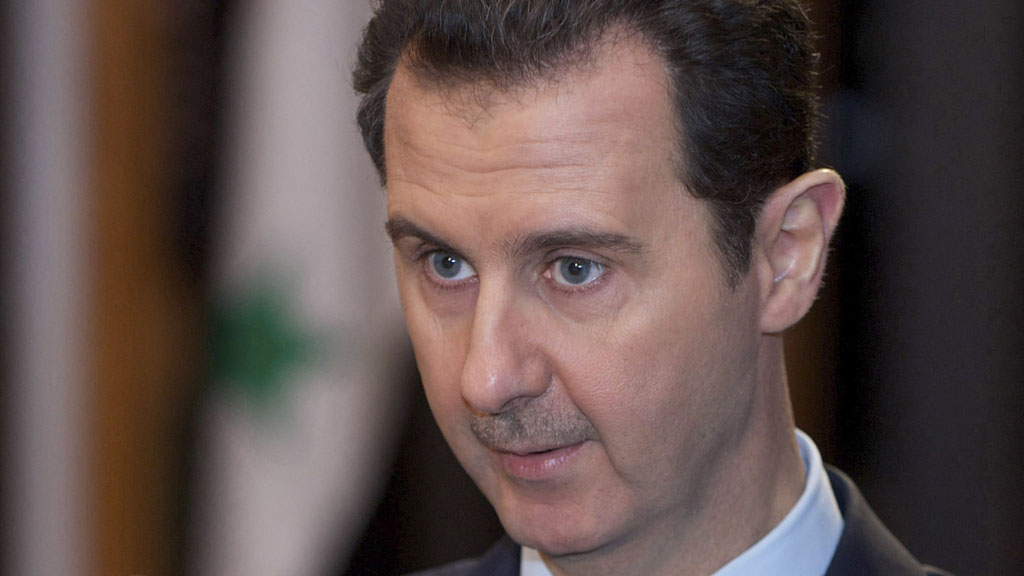
“If they (the opposition) insist on these delusions, there is no need for them to attend Geneva II,” a foreign ministry official was quoted as saying.
“Our people will not allow anyone to steal their right to choose their future and their leadership. The official Syrian delegation is not going to Geneva to surrender power.”
Days before the conference was due to start, Assad was quoted in the Russian media as dismissing any suggestion that he would stand down. The Syrian government denied such comments had been made.
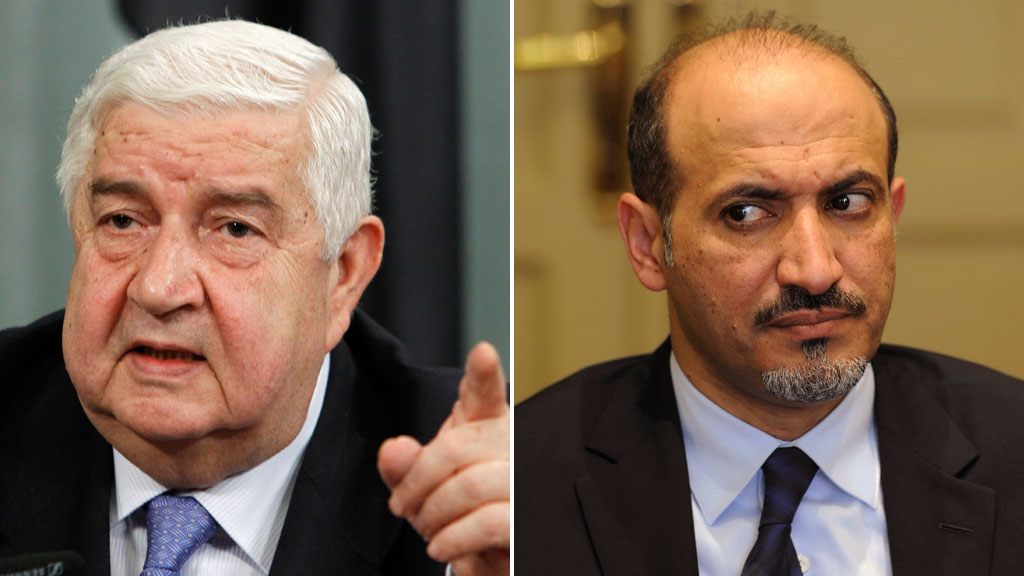
Key players
Syrian government: Walid al-Moualem (above, left)
Assad's foreign minister leads the government's delegation to Geneva. The 73-year-old diplomat was appointed foreign minister in 2006, and during the uprising has blamed demonstrations on a foreign conspiracy. Previously an ambassador to Washington in the 1990s, al-Moualem is a high-profile Sunni in Assad's Alawite Shia government.
Opposition: Ahmad al-Jarba (above, right)
The president of the Syrian National Coalition was elected six months ago in a bitter power struggle within the organisation. He has fought off challenges to his leadership, and has opened a dialogue with Kurdish parties who have been brought into the coalition. The former political prisoner was arrested during the uprising, and fled to Saudi Arabia.
Who do the SNC represent?
From its safe haven in Qatar, the Syrian National Coalition’s link to the fighting that is taking place on the ground is through the Free Syria Army. The FSA, it is envisaged, would come under the control of a civil ministry in the event that the Syrian National Coalition forms an interim government.
They do not represent, or speak for, a huge number of Islamist fighters also fighting on Syria’s battlefields. Those they do not represent range from the Syrian Islamic Liberation Front, a mixture of moderate and extreme jihadi groups thought to number around 37,000 fighters, and the Syrian Islamic Front, a more extreme collection of jihadi groups, thought to number around 13,000 fighters.
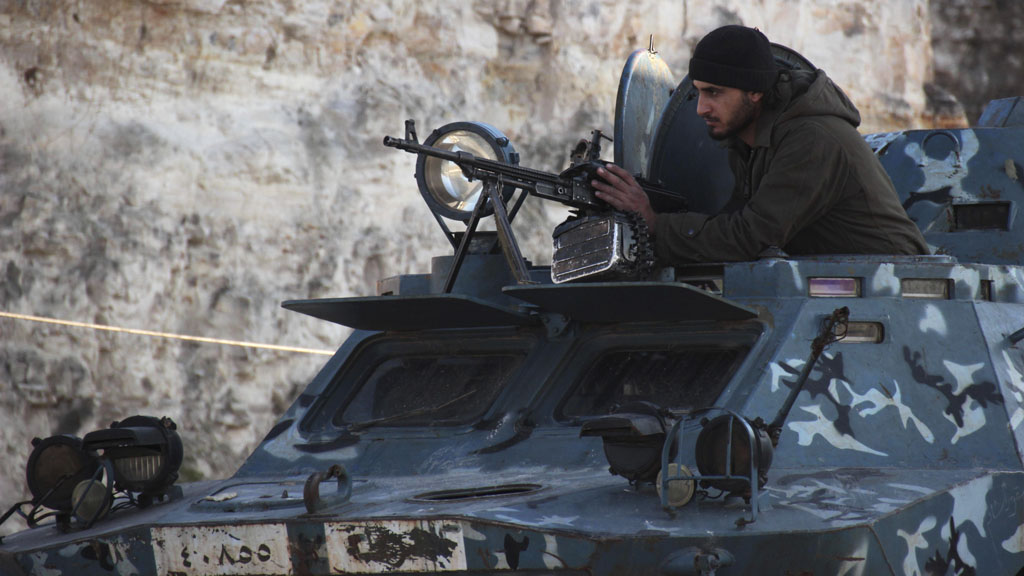
The Islamic State of Iraq and al-Sham (ISIS), the al-Qaeda linked extremist group, has also made advances in northern Syria – though since the start of the year this has been hit by a united pushback from insurgent (pictured, above). ISIS was forced out of 28 municipalities in ferocious fighting that saw it sustain heavy losses. It has been reported that ISIS is now counter-attacking.
What this means is that, within Syria, there are many opposition fighters who are not involved in the talks in Geneva, many who oppose such talks, and many who would be rejected from such talks even if they wanted to intend.
Any gains made in talks between Assad’s government and the SNC does not means gains with the complicated mixture of competing powers on the ground in Syria.
International positioning
Sat around the negotiating tables in Geneva will be Joint Special Representative of the UN and the League of Arab States for Syria Lakhdar Brahimi, and representatives of the Syrian government and the SNC. Lurking in the corridors of the Palais des Nations in Geneva, keen to respond to any developments inside, will be representatives of many governments from across the world.
The delegation that will not be present, however, is Iran. Despite making diplomatic in-roads with Western powers in recent months as negotiations take place over its nuclear programme, UN Secretary-General Ban Ki-Moon revoked Tehran’s invitation at the eleventh hour (having only issued it a day earlier).
The reason was Iran’s refusal to support the aims of the conference, the promotion of Geneva I’s six-point plan.
“Setting such a condition to accept the Geneva I agreement for attending at the Geneva II meeting is rejected and unacceptable,” ISNA quoted Deputy Foreign Minister Hosein Amirabdollahian as saying.
“Iran will attend the talks without any precondition based on an invitation by UN Secretary-General Ban Ki-moon.”
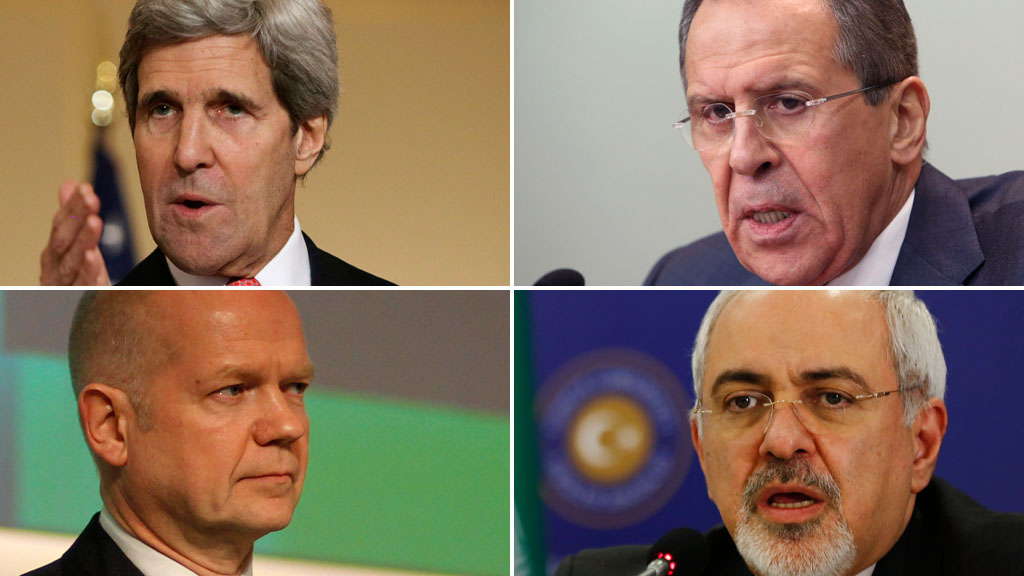
Last year, Jeremy Shapiro of Brookings Institution said to achieve peace in the Geneva discussions, Iran would need to be included. “We know (or should know) from long, hard experience that civil wars like the one in Syria don’t end as long as powerful external supporters oppose a settlement,” he said.
“Iran has the capacity to spoil any deal reached at Geneva. This brutal fact leads to the simple conclusion that we need to reach agreement with Iran if we want a political solution in Syria.”
Millions affected by this worst humanitarian crisis in decades will continue paying a heavy price if the peace talks fail. Thierry Benlahsen, SIRF
Russia has said it is a “mistake” that Iran is not attending, but added that it was not a “catastrophe”. Moscow also said that the Syrian opposition had held the conference to ransom by insisting Iran not attend.
And Russia also highlighted that the difference in aims – whether or not Assad remains in power – is taking place at an international level. Whilst the US and UK insist that the Geneva path must end with Assad removed, Russian Foreign Minister Sergei Lavrov said this was just an “interpretation”.
Horror on the ground
For the Syrian people, thousands of miles from Geneva’s debates, the daily horrors of this particularly brutal three-year war continue.
On Tuesday, evidence emerged that suggests the Assad regime has been torturing and systematically killing detainees – something described by a panel of experts as evidence of war crimes and crimes against humanity.
Rebel groups have also been accused of such crimes, including evidence that one rebel soldier ate a dead man’s heart.
Last week humanitarian aid was prevented from getting to thousands of starving Palestinian refugees trapped at the Yarmouk camp in Damascus, after it was reported that a convoy was fired upon by rebels.
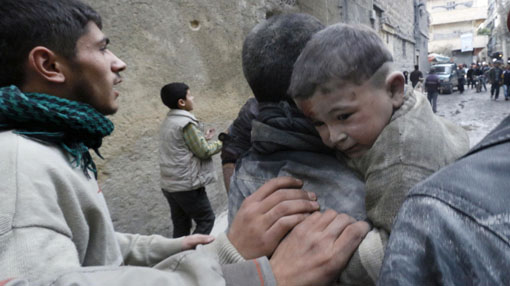
Thierry Benlahsen of the Syria INGO Regional Forum, a coalition of global humanitarian agencies, said: “Every day brings more death and, more communities are torn apart as hopes for reconciliation and recovery fade.
“Millions affected by this worst humanitarian crisis in decades will continue paying a heavy price if the peace talks fail.”
Improving the situation on the ground is one of the key aims of the conference. In a meeting held between Mr Lavrov and US Secretary of State John Kerry last week, the two men agreed to push for concessions that will improve the situation for people living in Syria.
This includes opening up routes for humanitarian access, negotiating local peace agreements, the freeing of detainees, and stopping the use of barrel bombs – barrels filled with explosives, oil, nails and other crude shrapnel that are rolled out of helicopters.
Whilst achieving concessions to improve the lives of Syrians trapped within the conflict will be welcomed, it remains to be seen if the ultimate goal, finding peace, can be achieved in such a difficult environment.
-
Latest news
-
Fans react to football clubs increasing season ticket prices4m

-
Infected blood scandal: Victims set to receive billions of government compensation7m

-
Iran’s president and foreign minister missing after helicopter crash3m

-
Yungblud launches his own affordable music festival5m

-
Why these Americans want to quit their state9m

-




